USMLE, ECFMG, AAMC, ERAS, NRMP, ACGME, FSMB, and FCVS: The Complex Alphabet Soup of Becoming a Medical Doctor in the United States
Posted January 3rd, 2022 by Dennis Abramson.
Categories: ECFMG, Healthcare Litigation, Medical Licensing, NBME, NRMP, USMLE, xHospital Credentialing.
We received a lot of calls from aspiring doctors last year after publishing our blog post about becoming a physician in the United States, and we are always looking to share information and materials that might assist aspiring doctors in navigating the process to becoming a licensed physician in the United States.
In a brief filed in federal court, attorneys for the American Medical Association (“AMA”) and Association of American Medical Colleges (“AAMC”) provided the United States District Court for the Third Circuit with an outstanding explanation of the demanding, and often confusing, process that U.S. medical graduates and graduates of non-U.S. medical colleges (IMGs), must go through in order to become licensed, practicing physicians in the United States of America.
As noted in the brief, obtaining a license to practice medicine in the United States requires rigorous academic discipline, which is confirmed and amplified through a complex testing, application, and certification process involving numerous organizations. Prior to licensure, every state requires that, at a minimum, a graduate of a medical school receive at least one year – and in many cases, more – of post-graduate medical education, known as Graduate Medical Education (“GME”). This is true for those who obtain their medical degree in the United States, and it is also true for IMGs. GME occurs through medical residency programs which are accredited by the Accreditation Council for Graduate Medical Education (“ACGME”). To enter into a residency program in the United States, IMGs must first obtain an ECFMG certification. The ACGME accepts only ECFMG certified IMGs, which means that an overwhelming majority of IMGs in the United States were at some point certified by ECFMG. Generally, Medicare – which provides reimbursement to hospitals for costs of training residents – will pay only for international residents who have been certified by ECFMG
Generally speaking, the ECFMG certification requires two things: 1) passing scores on certain medical exams and a demonstration of English proficiency, and 2) primary source verification of the IMG’s medical school transcript. The residency application process for all resident-hopefuls is centralized via the AAMC’s Electronic Residency Application Service (“ERAS”). During the matching process, the NRMP and ECFMG conduct “weekly exchanges” regarding the examination certifications for IMG applicants. Once an IMG successfully matches into a residency program, the program will conduct a background check before ranking the medical school graduate. In addition, hospitals and states will require a criminal background check on residents before they can start their training.
Upon completion of a residency program, the doctor who wishes to practice medicine in the United States must apply for a state medical license. Each state sets its own standards for licensure. The FSMB, through Federation Credentials Verification Services (“FCVS”), establishes a centralized way for the state boards to verify residents’ credentials. State medical boards rely on this centralized, uniform process for obtaining primary-source verified, education information for those applying for licensure. Working with the appropriate education and training institutions to verify a resident’s credentials, FCVS obtains primary source verification of, among other things, the resident’s identity, medical education, and licensure examination history.
Each organization refenced by counsel in the excerpt taken from its brief above has its own complex system of rules, policies and procedures that applicants, examinees, and candidates are required to acknowledge, understand, and follow. Navigating this complex system is inarguably a daunting task. Those unsure about any aspect of the process, or who find themselves accused of running afoul of any rule or policy along the way, should consult with legal counsel experienced in such matters.
The attorneys at Abramson & Abramson have:
- Successfully defended examinees against allegations of irregular behavior brought by USMLE.
- Successfully defended IMGs against allegations of irregular behavior brought by ECFMG.
- Successfully defeated the attempts of GME residency training programs to obtain a waiver from a match commitment with NRMP, resulting in NRMP’s refusal to grant the waiver, thus requiring the residency program to fulfill its match commitment and employee and train the client.
- Successfully obtained match commitment waivers sought by our clients from NRMP.
- Successfully obtained exceptions to ECFMG credentialing rules and policies, including with respect to primary source verification and the “Seven Year Rule”, thus permitting our clients to obtain and/or otherwise be eligible for ECFMG Certification
- Successfully obtained state medical board sponsorship to permit our clients additional attempts on USMLE Step examinations beyond the “Four Attempt Rule”
- Successfully caused institutions to modify client reports previously made to the National Practitioner Data Bank (NPDB or the Data Bank)
- Successfully caused institutions to modify reports previously made and which previously appeared on the client’s FCVS Report
- Successfully defended disciplinary actions brought by FSMB-member state medical boards against our physician clients’ licenses
- Successfully defended claims of irregular conduct by the National Board of Osteopathic Medicine (NBOME)
- Successfully defended claims brought by the American Board of Internal Medicine (ABIM) that clients had unauthorized access to ABIM Board Certification examination content in advance of examination
- On more than one occasion, successfully caused our client’s ECFMG Certificates to be reinstated after revocation
- Successfully defended allegations brought by AAMC for failure to provide truthful and complete information on an ERAS application, resulting in no finding of a violation of the ERAS Integrity Policy.
Should you have a question about the process of becoming a physician or with respect to any credentialing or licensing body’s rules, policies, and procedures, or otherwise require legal assistance in related matters, our experienced attorneys stand ready to assist.

